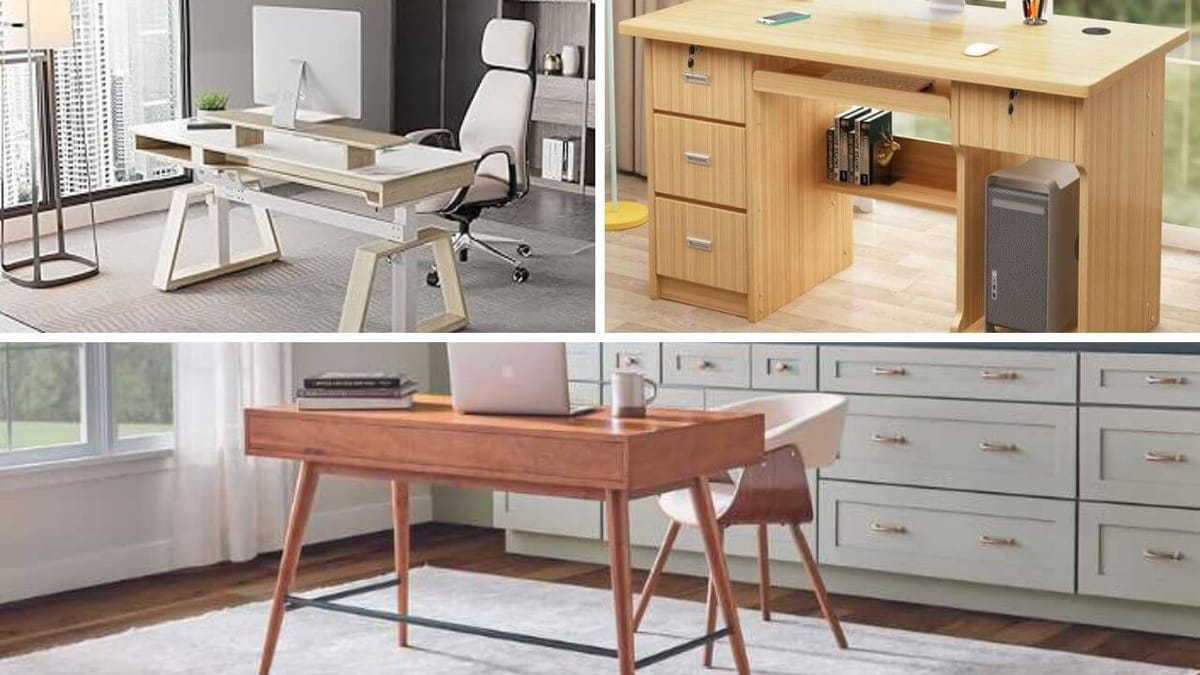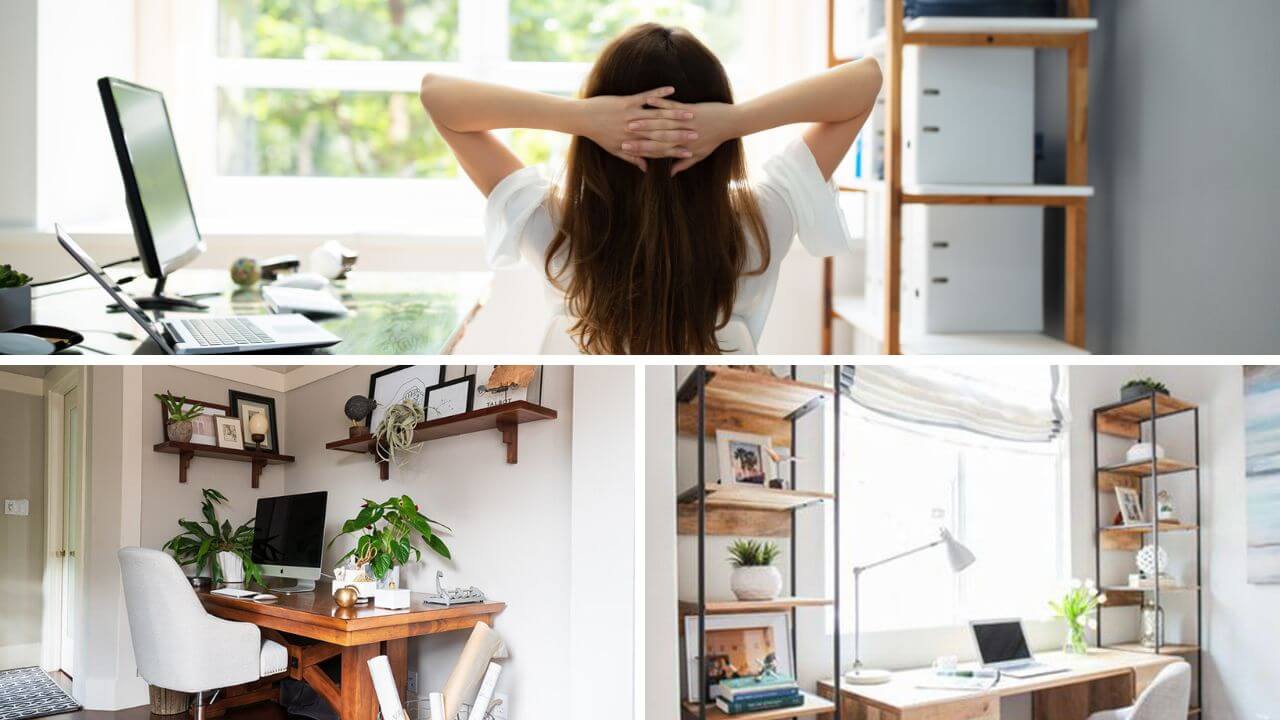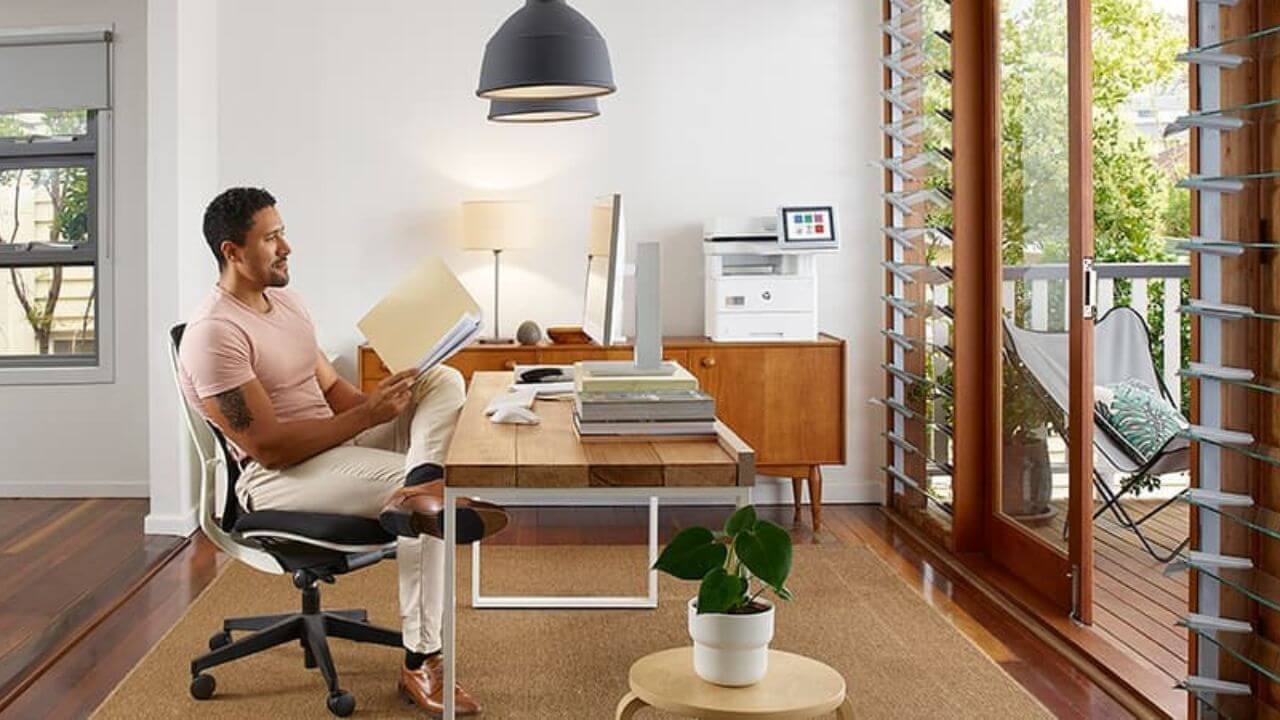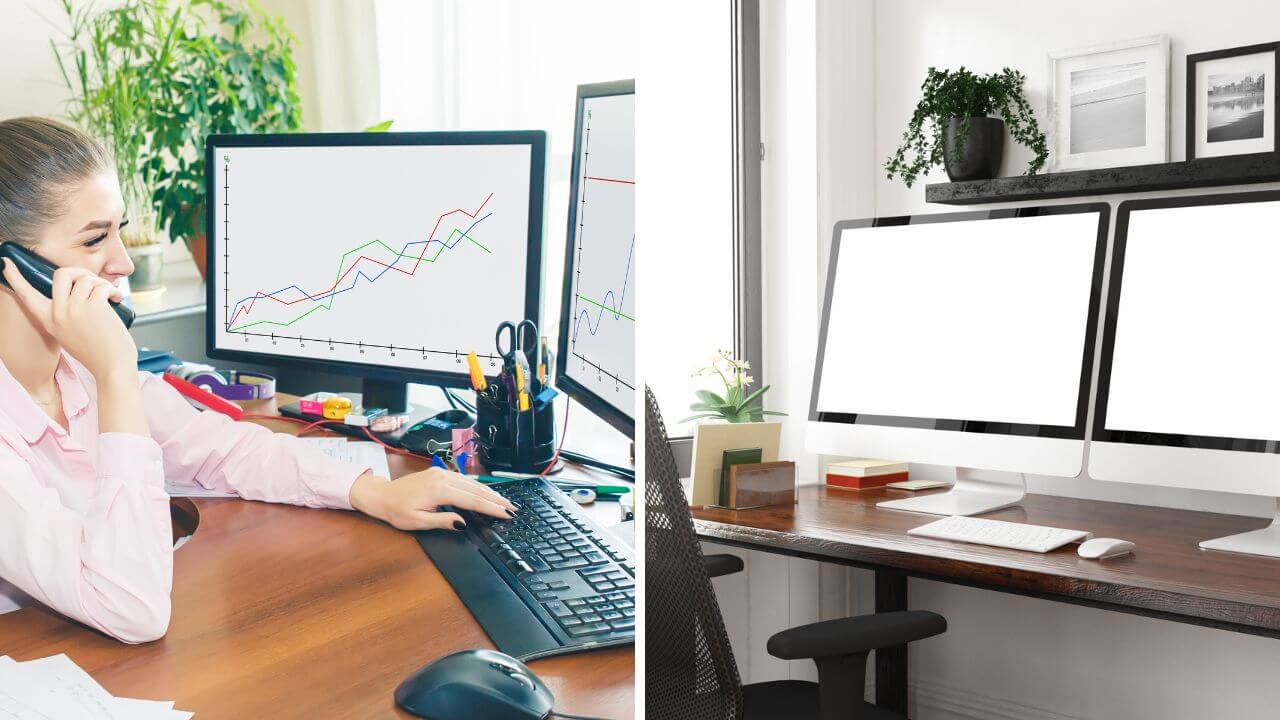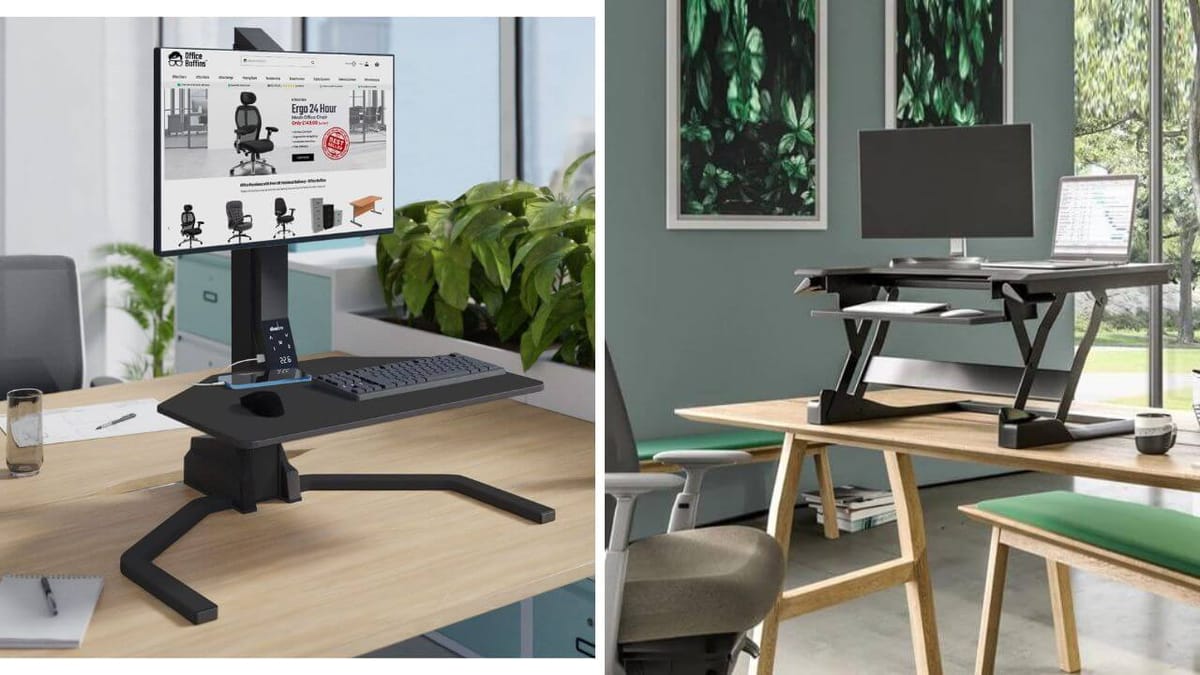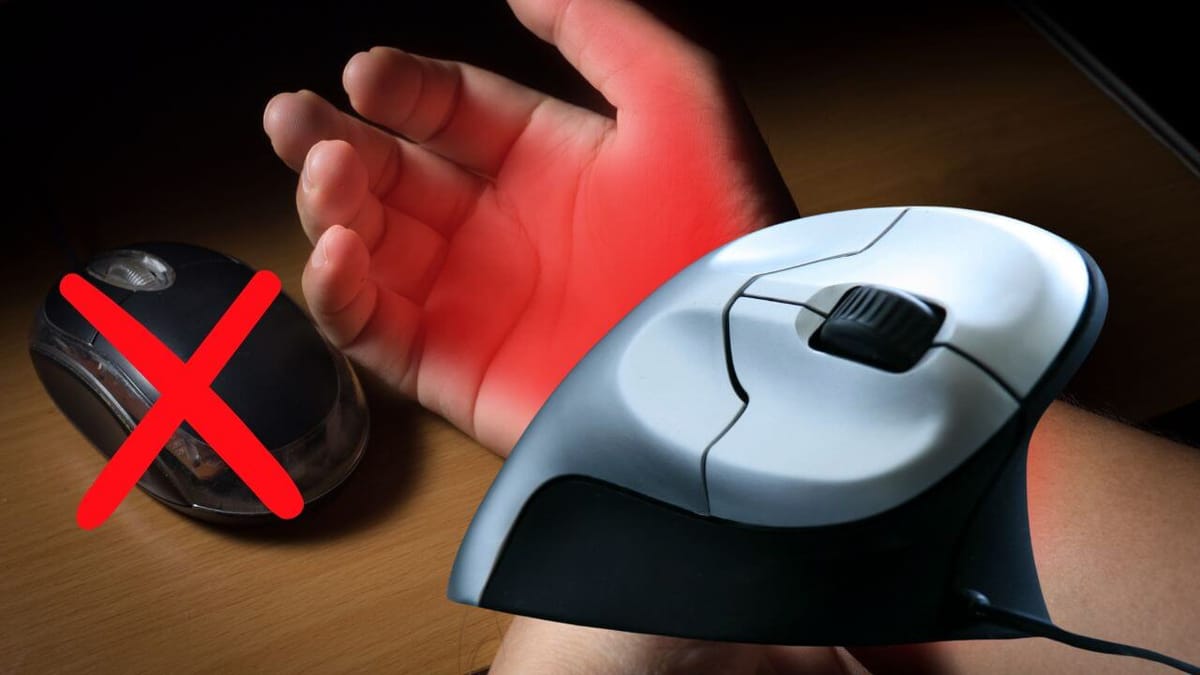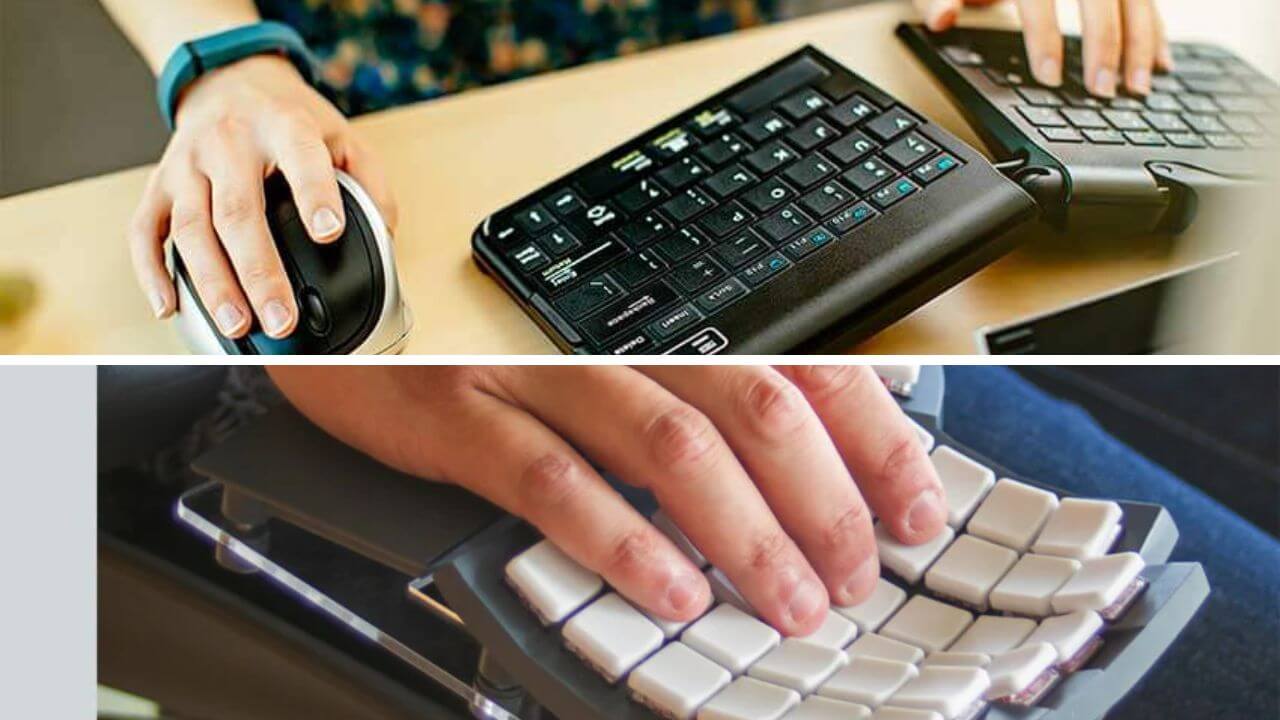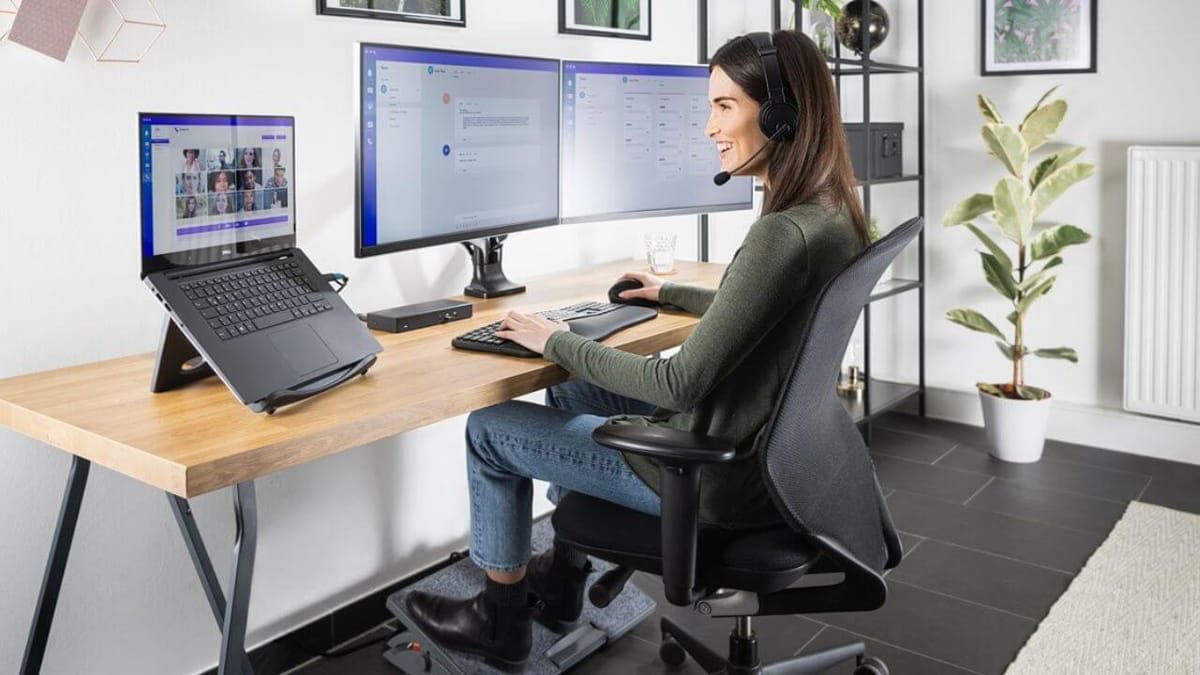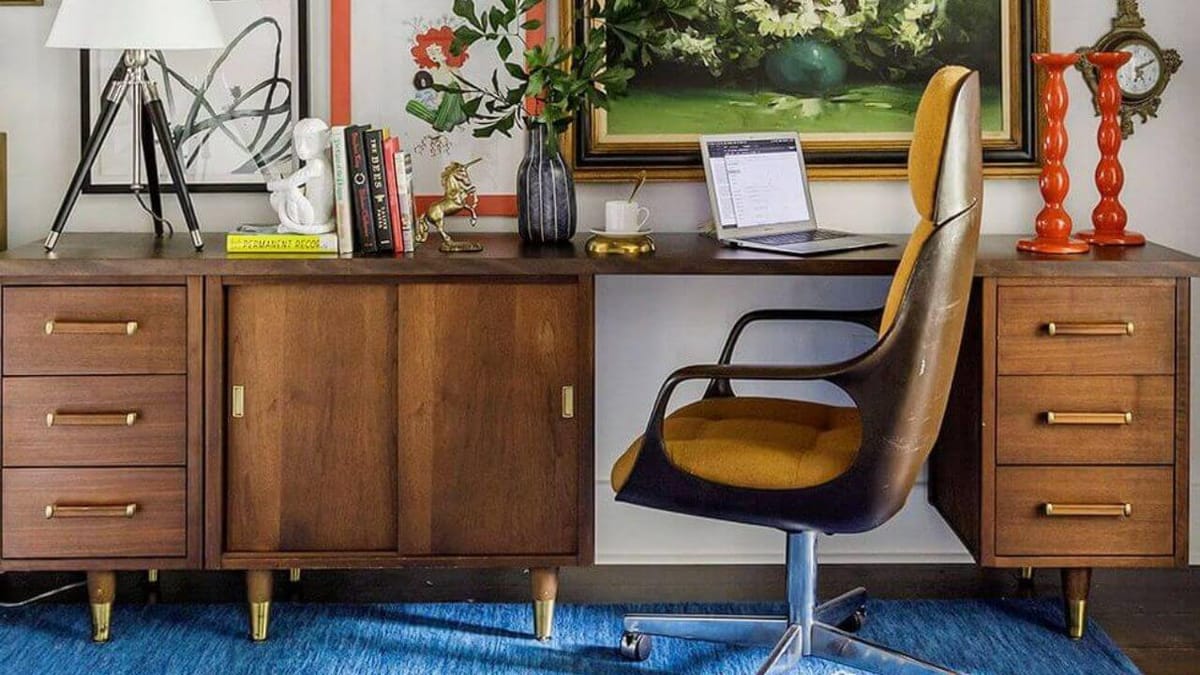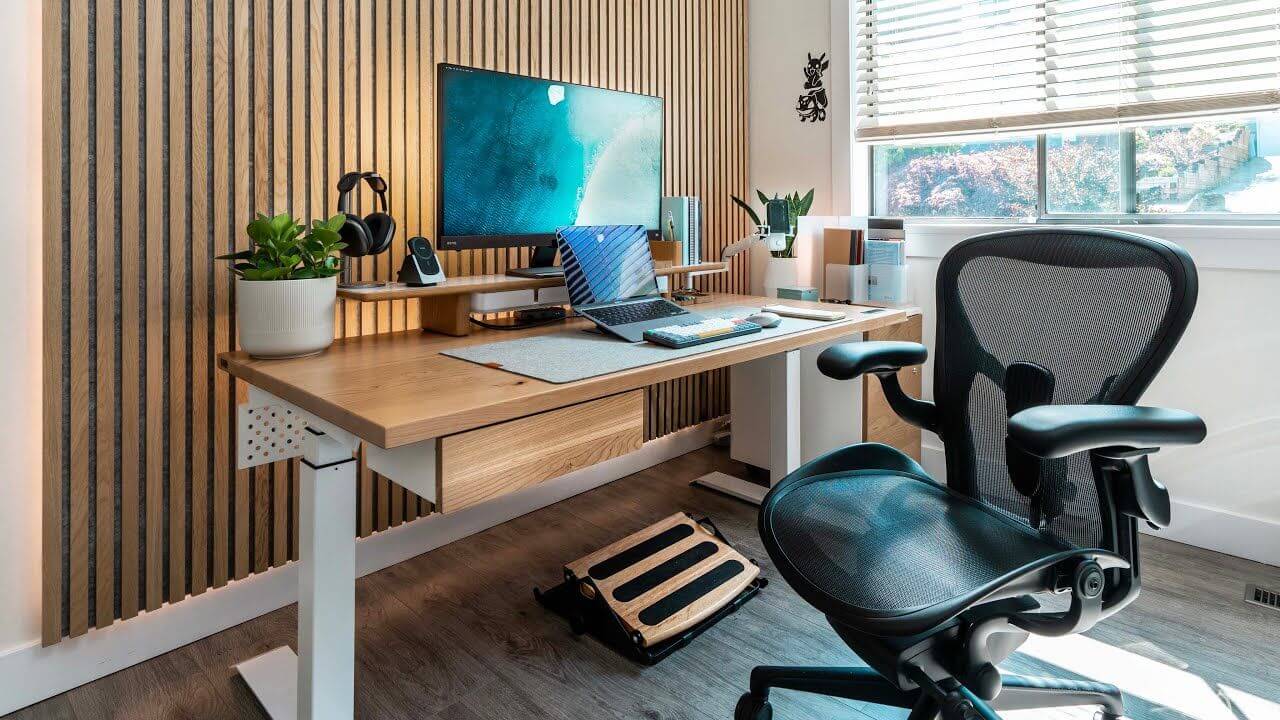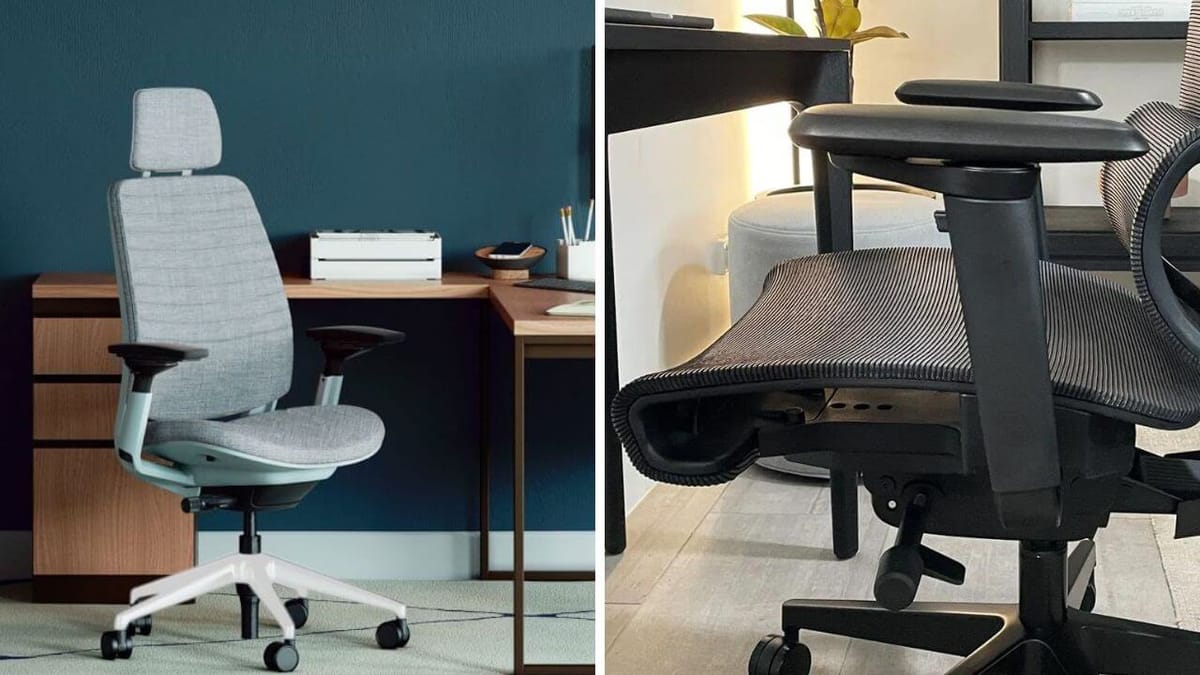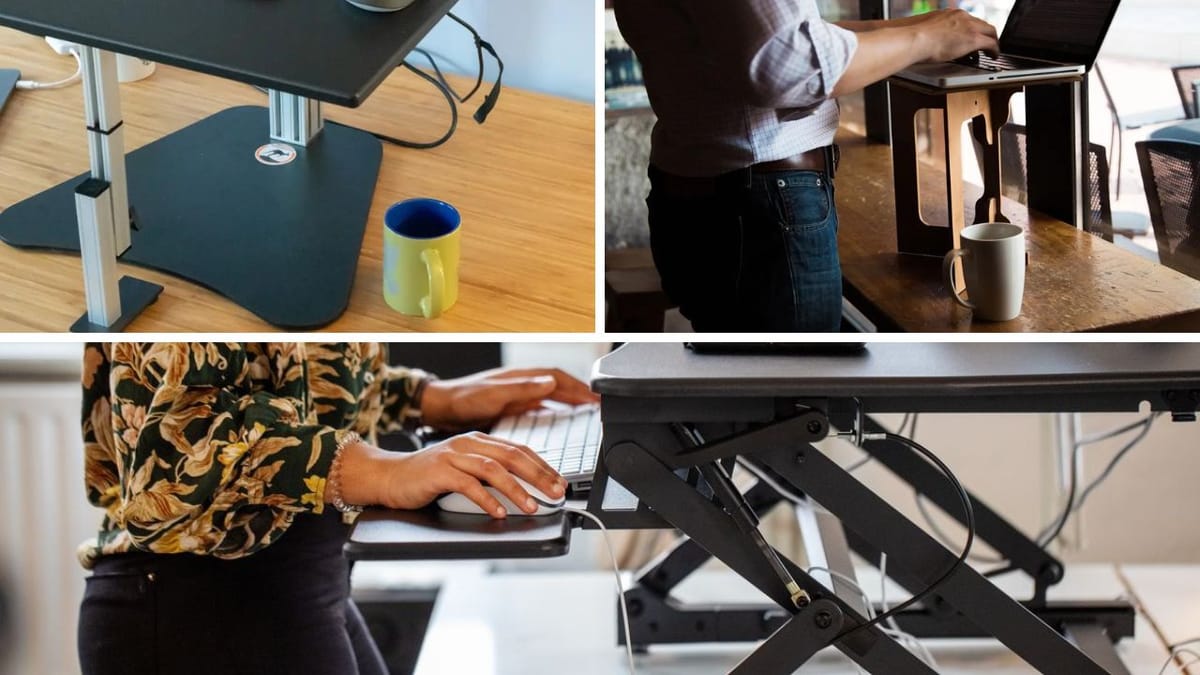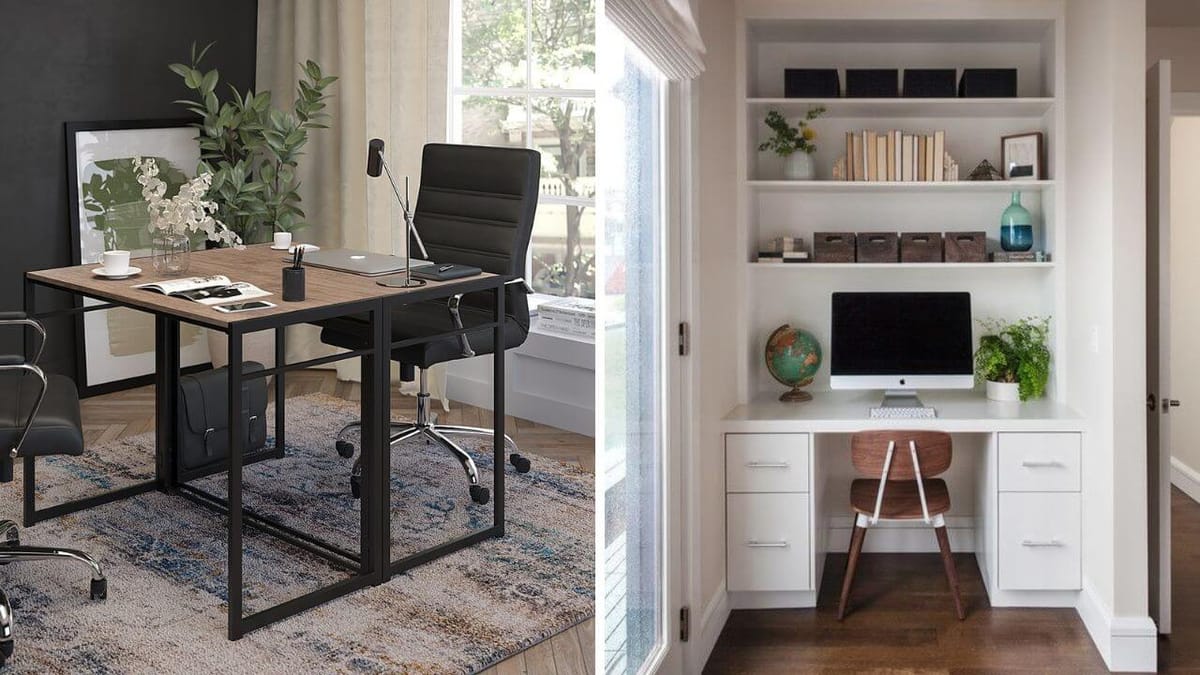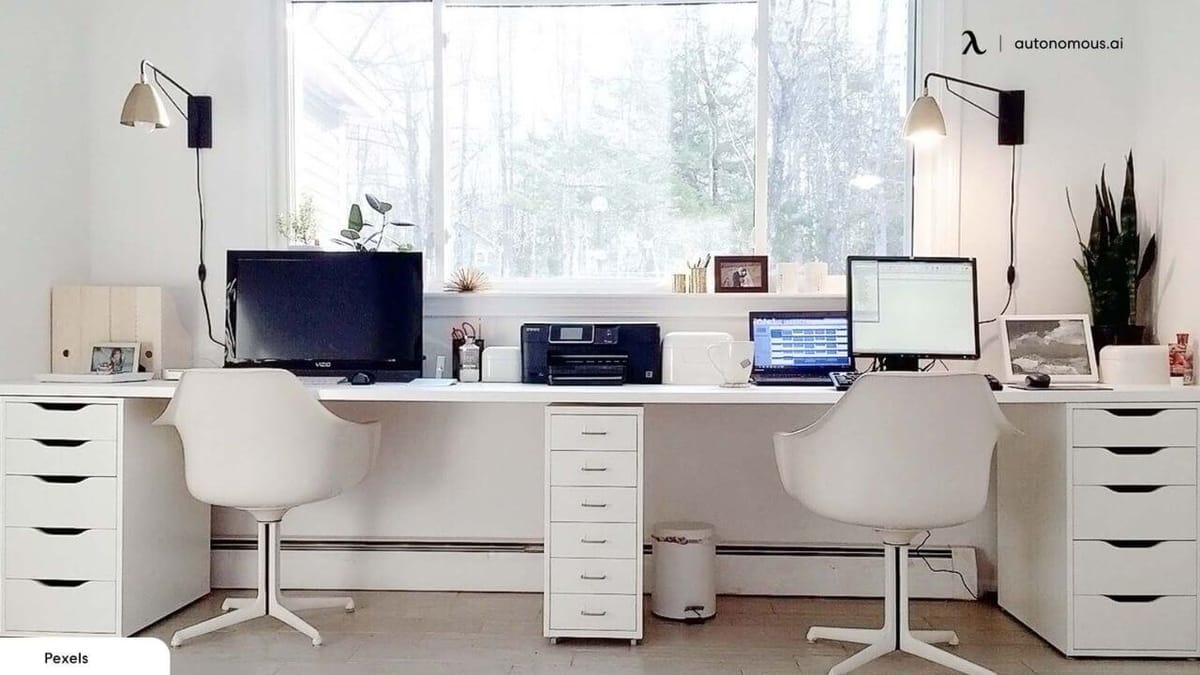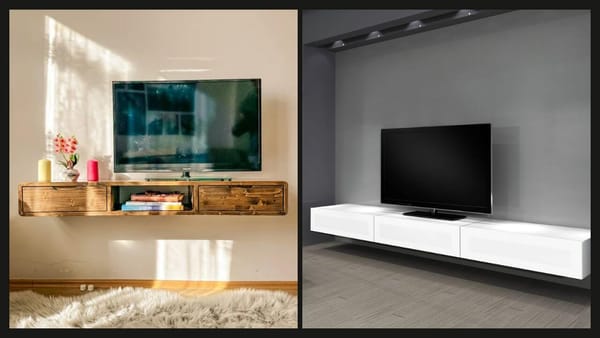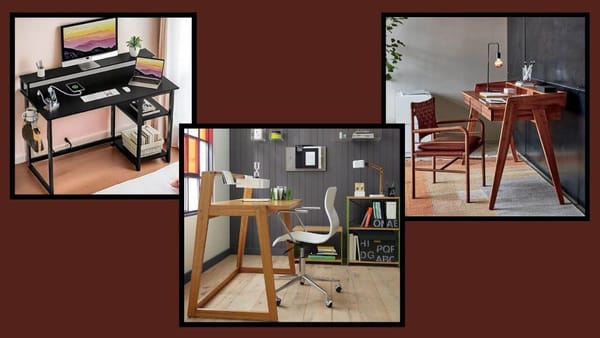Key Takeaways:
- Identify Your Needs: Understand your work style and space requirements to select the perfect desk.
- Consider Ergonomics: Ensure the desk height and chair provide proper support for long hours.
- Maximize Storage: Opt for office desks with ample storage options to keep your workspace organized.
Introduction
Choosing the right home office desk can feel like finding a needle in a haystack. With so many options available, it's easy to get overwhelmed. But fear not! This guide will help you navigate the process and show you how to choose a desk for a home office that suits your needs, style, and space.

Understanding Your Work Style
Before diving into the world of desks, take a moment to reflect on your work style. Do you spend long hours at the computer, or do you need space for paperwork and other office supplies? Understanding your daily tasks will help you choose a desk that meets your specific needs.
For instance, if you primarily work on a computer, a computer desk with a pull-out keyboard tray might be ideal. On the other hand, if you need space for writing and organizing documents, writing desks with ample surface area would be more suitable.

Measuring Your Space
One of the most critical factors in choosing a desk is ensuring it fits comfortably in your home office. Measure the available space and consider the desk size that will leave enough room for other furniture and movement.
A corner desk can be a great option if you're working with limited space. It utilizes the corner of the room, leaving the rest of the area open for other activities. Alternatively, a floating desk can save floor space and give your office a modern look.
Ergonomics and Comfort
Ergonomics play a crucial role in maintaining your health and productivity. Desks at the proper height, combined with office chairs that offer lumbar support, can prevent discomfort and long-term health issues.
Consider a height-adjustable desk if you prefer alternating between sitting and standing. Standing desks are becoming increasingly popular for their health benefits, allowing you to change your posture throughout the day.

Storage Options
A cluttered desk can hinder productivity. Look for desks with ample storage options, such as drawers, shelves, and cabinets, to keep your workspace organized. An executive desk often comes with built-in storage, providing a neat and tidy environment.
If you have limited space, a secretary desk with fold-out compartments can be a compact yet functional solution. It offers storage without taking up too much room.

Desk Surface and Material
The desk surface and material can impact both aesthetics and functionality. A wooden desk provides a classic look and durability, while a glass desk offers a sleek, modern appearance. Consider the maintenance and longevity of the material when making your choice.
For those who need a lot of surface area, an L-shaped desk can provide ample space for multiple monitors, documents, and other accessories. It also helps in keeping different tasks organized.
Cable Management
With the plethora of electronic devices in a modern home office, cable management is essential. Look for desks with built-in cable management systems to keep wires organized and out of sight.
A desk with a cable tray or grommets can help you maintain a clean and tidy workspace. This feature is particularly useful for computer desks, where multiple cables can quickly become tangled.

Desk Height and Adjustability
The height of your desk can significantly impact your comfort and productivity. Ensure the desk height is appropriate for your chair and allows you to work without straining your neck or back.
Height-adjustable desks offer flexibility, allowing you to customize the desk height to your preference. This feature is especially beneficial if multiple people use the same workspace.

Aesthetics and Style
Your home office should reflect your personal style and create an environment where you feel comfortable and inspired. Choose a desk that complements the overall decor of your office.
Whether you prefer a modern, minimalist look or a traditional, classic design, there's a desk to match your taste. A floating desk can add a contemporary touch, while a wooden executive desk exudes elegance and sophistication.
Budget Considerations
While it's tempting to splurge on a high-end desk, it's essential to consider your budget. Determine how much you're willing to spend and look for desks that offer the best value for your money.
There are plenty of affordable options that don't compromise on quality. For example, a basic desk or a standing desk with a simple design can be both functional and budget-friendly.
Additional Features
Consider any additional features that might enhance your workspace. For instance, a desk with a built-in laptop stand can improve ergonomics, while a desk with a pull-out keyboard tray can save surface space.
Other accessories, such as a task light or a desk chair with adjustable features, can further enhance your comfort and productivity. Think about what will make your workday more efficient and enjoyable.

Personalizing Your Workspace
Your desk is more than just a piece of furniture; it's the heart of your workspace. Personalize it with items that inspire you and make you feel at home.
Add a few decorative touches, such as plants, photos, or artwork, to create a space that reflects your personality. A well-decorated desk can boost your mood and make your workday more enjoyable.
Choosing the Right Desk Chair
A desk chair is just as important as the desk itself. Look for a chair that offers good lumbar support and is adjustable to fit your height and posture.
An ergonomic chair can prevent discomfort and improve your productivity. Consider features such as adjustable armrests, seat height, and backrest tilt to find the perfect chair for your needs.
Considering Future Needs
Think about your future needs when choosing a desk. Will you need more storage space or a larger surface area as your work evolves? Planning can save you from needing to replace your desk in the near future.
A modular desk system can be a flexible solution, allowing you to add or remove components as needed. This adaptability can be particularly useful if your work requirements change over time.
Desk Placement and Lighting
The placement of your desk can impact your productivity and comfort. Position your desk near a window to take advantage of natural light, which can boost your mood and energy levels.
If natural light is limited, invest in a good task light to ensure your workspace is well-lit. Proper lighting can reduce eye strain and make your work environment more pleasant.
Desk Maintenance
Maintaining your desk is essential for its longevity and appearance. Regular cleaning and proper care can keep your desk looking new and functioning well.
For wooden desks, use a suitable cleaner and polish to maintain the finish. For glass desks, a simple glass cleaner can keep the surface sparkling. Regular maintenance can extend the life of your desk and keep it looking its best.
Environmental Considerations
If sustainability is important to you, consider desks made from eco-friendly materials. Many manufacturers offer desks made from recycled or sustainably sourced materials.
Choosing an environmentally friendly desk can reduce your carbon footprint and contribute to a more sustainable future. Look for certifications or labels that indicate the desk's eco-friendly credentials.
Desk Assembly
Some desks require assembly, which can be a daunting task for some. Check if the desk comes with clear instructions and all the necessary tools for assembly.
If you're not comfortable with DIY assembly, consider purchasing a desk that comes pre-assembled or hiring a professional to do the job. This can save you time and frustration.
Desk Accessories
Enhance your workspace with accessories that improve functionality and comfort. A laptop stand can elevate your screen to eye level, reducing neck strain.
Other useful accessories include a desk organizer for office supplies, a monitor stand for your computer monitor, and a footrest for added comfort. These small additions can make a big difference in your workday.
Summary
Choosing the right desk for your home office involves considering various factors, from your work style and space requirements to ergonomics and aesthetics. By understanding your needs and preferences, you can find a desk that enhances your productivity and comfort. Remember to consider storage options, desk height, and additional features that can make your workspace more efficient and enjoyable.
FAQ
What is the ideal desk height for a home office?
The ideal desk height for a home office is typically between 28 to 30 inches. However, the best height depends on your chair and your height. Your elbows should be at a 90-degree angle when typing, and your feet should be flat on the floor.
How can I maximize storage in a small home office?
To maximize storage in a small home office, consider desks with built-in storage options such as drawers, shelves, and cabinets. A corner desk or a floating desk can also save space while providing ample storage.
Are standing desks worth the investment?
Standing desks can be worth the investment if you spend long hours at your desk and want to improve your posture and reduce the risk of health issues associated with prolonged sitting. They offer the flexibility to switch between sitting and standing, which can enhance comfort and productivity.
Click to read our article about the best modern home office desks!

